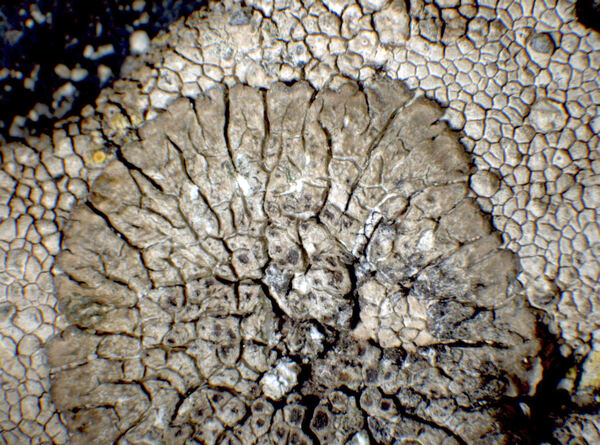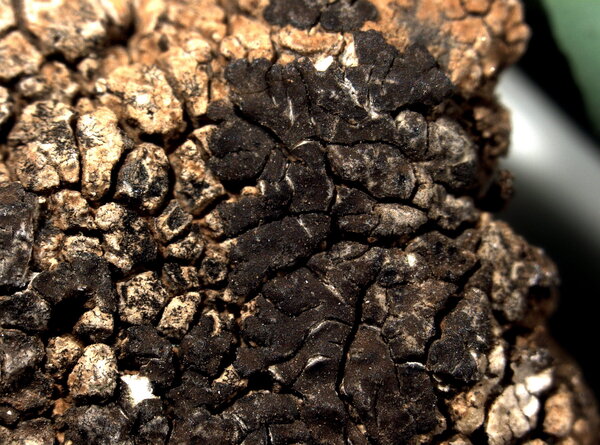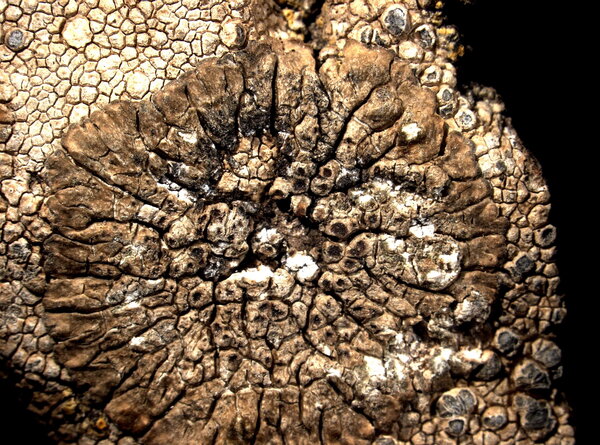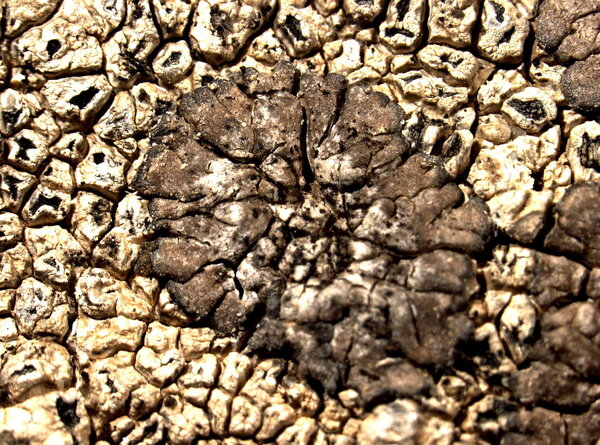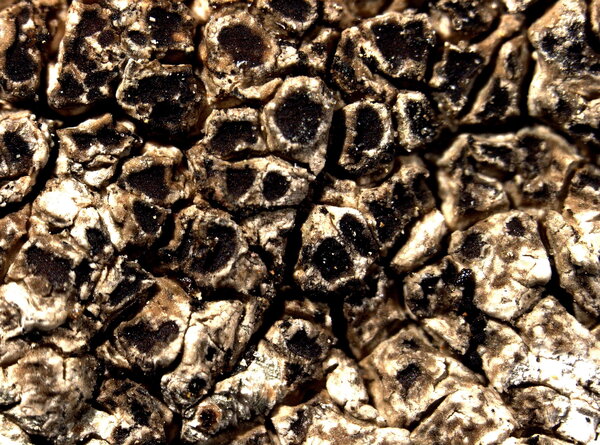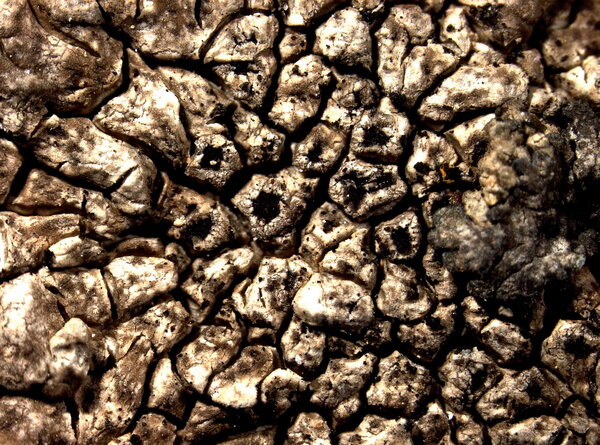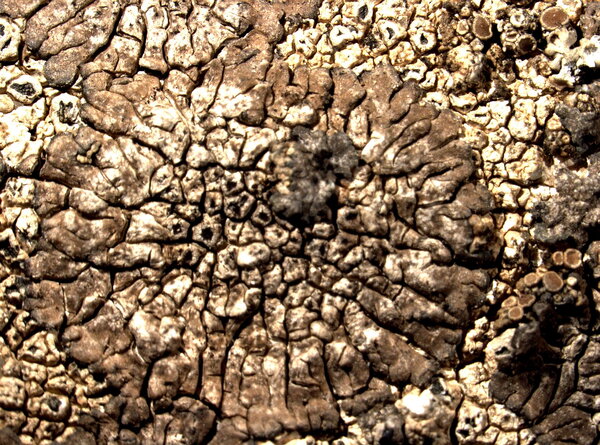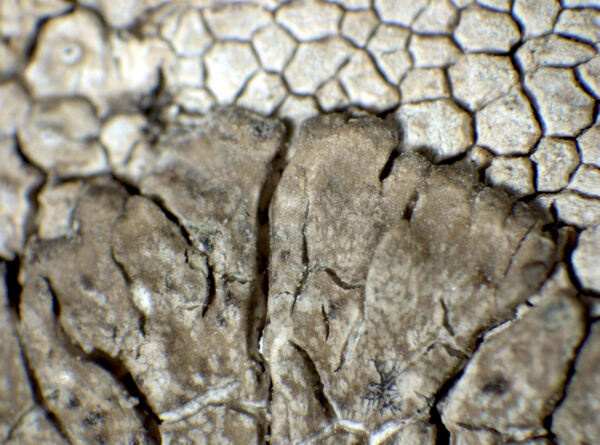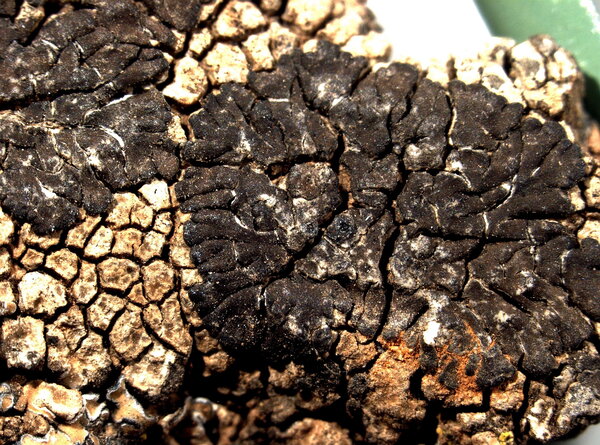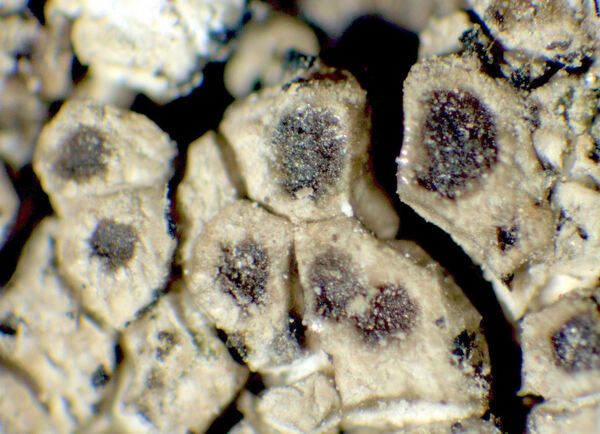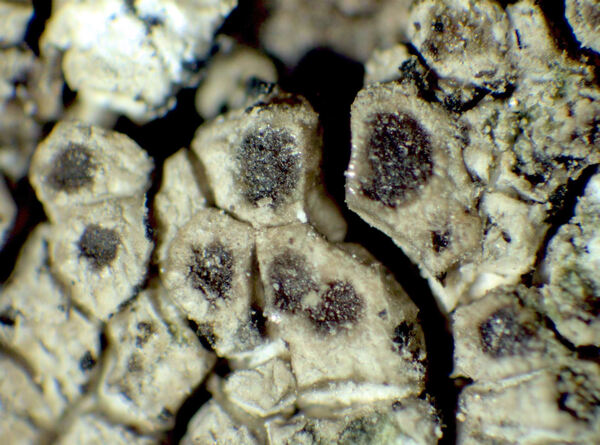Lobothallia parasitica (B. de Lesd.)
Provisionally placed here, ICN Art. 36.1b.. Basionym: Aspicilia parasitica B. de Lesd. - Bull. Soc. Bot. France, 78: 728, 1932.
Synonyms: Lecanora parasitica (B. de Lesd.) Zahlbr.
Description: Thallus crustose-placodioid, episubstratic, growing on the thalli of other crustose lichens, pale to dark grey, brownish grey or greenish grey, generally epruinose, rimose-areolate in central parts, lobed at margins, forming distinct, orbicular up to a few cm wide rosettes. Lobes contiguous, usually flattened at least in distal parts, never overlapping, 0.3-0.8(-1) mm long; Apothecia lecanorine-aspicilioid, generally numerous and often deformed by mutual compression, with a black, epruinose disc and a thin, scarcely raised thalline margin. Epithecium brown, 17-35 µm high; hymenium colourless, 50-100 µm high, K/I+ blue; paraphyses usually simple, tightly compacted, submoniliform with globose, 2-3 µm wide apical cells: hypothecium colourless, 25-35(-40) µm high, underlain by an algal layer. Asci 8-spored, oblong-clavate, the thin outer coat K/I+ blue, the wall and apical dome K/I-. Ascospores 1-celled, hyaline, ellipsoid to subglobose, (10-)11-14 x 6-9 µm. Pycnidia appearing as black dots, immersed, with a colourless wall. Conidia bacilliform, (4-)6-7 x c. 1 µm. Photobiont chlorococcoid. Spot tests: thallus K+ reddish brown or K-, C-, KC-; medulla K+ yellow. Chemistry: medulla with stictic acid.
Growth form: Crustose placodiomorph
Substrata: rocks
Photobiont: green algae other than Trentepohlia
Reproductive strategy: mainly sexual
paras crustose lichens
Commonnes-rarity: (info)
Alpine belt: absent
Subalpine belt: absent
Montane belt: extremely rare
Dry submediterranean belt: extremely rare
Humid submediterranean belt: rare
Padanian area: absent
pH of the substrata:
1 2 3 4 5
Solar irradiation:
1 2 3 4 5
Aridity:
1 2 3 4 5
Eutrophication:
1 2 3 4 5
Poleotolerance:
0 1 2 3
Altitudinal distribution:
1 2 3 4 5 6
Rarity
absent
extremely rare
very rare
rare
rather rare
rather common
common
very common
extremely common
Loading data...
Occurrence data
Predictive map
Growth form: Crustose placodiomorph
Substrata: rocks
Photobiont: green algae other than Trentepohlia
Reproductive strategy: mainly sexual
paras crustose lichens
Commonnes-rarity: (info)
Alpine belt: absent
Subalpine belt: absent
Montane belt: extremely rare
Dry submediterranean belt: extremely rare
Humid submediterranean belt: rare
Padanian area: absent
pH of the substrata:
| 1 | 2 | 3 | 4 | 5 |
Solar irradiation:
| 1 | 2 | 3 | 4 | 5 |
Aridity:
| 1 | 2 | 3 | 4 | 5 |
Eutrophication:
| 1 | 2 | 3 | 4 | 5 |
Poleotolerance:
| 0 | 1 | 2 | 3 |
Altitudinal distribution:
| 1 | 2 | 3 | 4 | 5 | 6 |
Rarity
absent
extremely rare
very rare
rare
rather rare
rather common
common
very common
extremely common
Loading data...
Occurrence data
Predictive map


